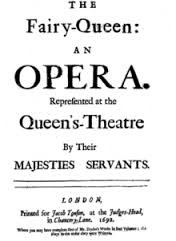By David Ward
March 2017. This is the latest in an erratic series of newsletters about the choir that will include information about what we are singing plus irrelevant ramblings and observations from the back row of the basses.
As I write this, we have two main rehearsals to go before the concert on April 9. I am touching any bit of timber I can get my hands on as I say that it all seems to be going rather well.
It’s turning out to be a very well balanced programme, a musical sandwich, with the simple piety of the Schubert Mass fitting nicely between the Lutheran severity of the Bach cantata and the confident God-on-our-side triumphs of Handel’s anthem.
Having nothing better to do one day, I did a word count on Let God Arise: there are just 93 words in the whole thing but the basses manage to sing Alleluia 43 times in two minutes and four seconds. There is, however, no way I am going to count the number of notes, a task that would render the horse and chariot of my mental capacity well and truly fall’n, fall’n.
I’m enjoying all three works but Nun danket is special. It takes my very restricted ability to the absolute limit but when things go well, singing that bass line is like surfing the wildest rollers of a boiling sea. It’s a breathtaking (literally), exhilarating experience that leaves me lost in admiration at the man’s genius.
It should be a great concert; keep sticking up posters, handing out flyers and flogging tickets.
Enough of these superlatives. The singing day was a well-attended lot of fun (with large amounts of tea – Thanks Roger and Mike) and a chance to get to grips with two of the works that we’ll sing in the summer, choruses from the enormous Shakespeare Ode by Thomas Linley the Younger and chunks from Purcell’s The Fairy Queen, which I saw at the Newcastle Playhouse in 1973 when it was staged to celebrate Britain’s entry into the Common Market. How innocent a time that now seems.
I think the correct title for Linley’s piece is A Lyric Ode on the Fairies, Aerial Beings and Witches of Shakespeare; it was first performed at the great Shakespeare Festival staged in Stratford-upon-Avon in 1769 by the actor David Garrick.
The music is inventive and fun to sing, especially since its composer was at the time only 22 and about to die in a boating accident in Lincolnshire; but the text, by Dr French Laurence (1757-1809), a noted lawyer, is truly awful. No Shakespeare plays were performed at the festival (during which it rained a lot and the Avon flooded) so audiences were stuck with Dr Laurence’s terrible scribblings. His text for Linley begins: O guardian of that sacred land Where Avon’s wood-crown’d waters stray and doesn’t get any better. Stick to the day job, Dr Laurence.
Rehearsals for the summer concert begin on April 11 but there will be no meeting on April 18, when Donald is giving us a week off for Easter. If you want to get ahead for summer, there is what seems to be a fine recording of Linley’s Ode by the Parley of Instruments Baroque Orchestra and Chorus under Paul Nicholson; the chorus is particularly good with howling whirlwinds. You can download tracks for around 50-60p each.
If you want to save money, you can try YouTube, where you’ll find Linley’s Arise ye spirits of the storm from The Tempest performed – exceedingly well to my inexpert ear – by a Russian group directed by an energetic conductor: www.youtube.com/watch?v=2Uk9sNQAt4s. It prompts the question: of all the English composers a Russian ensemble could have found, how did they chance on this one?

The Fairy Queen was first performed in 1692 with children aged eight or nine cast in the roles of Oberon and Titania; they must have been remarkable kids. The score was later lost, turning up again only a century or so ago. You Tube offers many performances.
At the singing day, Donald laid out a collection of John Coope’s books and invited us to take what we liked. Some of us were up the stairs two at a time to see what was on offer: scores of Don Giovanni and Figaro, and Amahl and the Night Visitors; an anthology of Irish songs, including many that the nuns taught me at primary school; and – the one I grabbed – A Historical Anthology of Music published by Harvard University Press in the year I was born.
I took this large volume very much with the interest of choir members in mind. It includes music stretching back almost 2000 years, with ancient pieces from China, Japan, Thailand, Arab countries, Greece and the Byzantine empire.
I thought it best to remove it from Donald’s gaze before he had us singing, in their original languages, an ancient hymn from the Oteochos (whatever that is) or a Syrian intonation of the Pentateuch or even the Hymn to the Sun by Mesomedes of Crete. It was bad enough when he went on holiday to Iceland.
Enough.
David